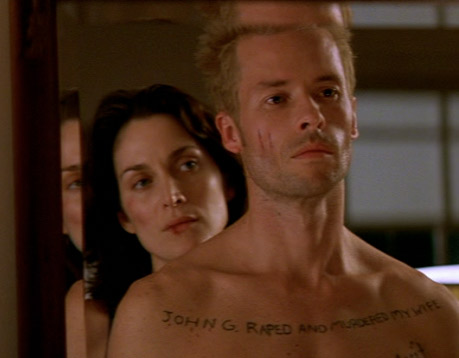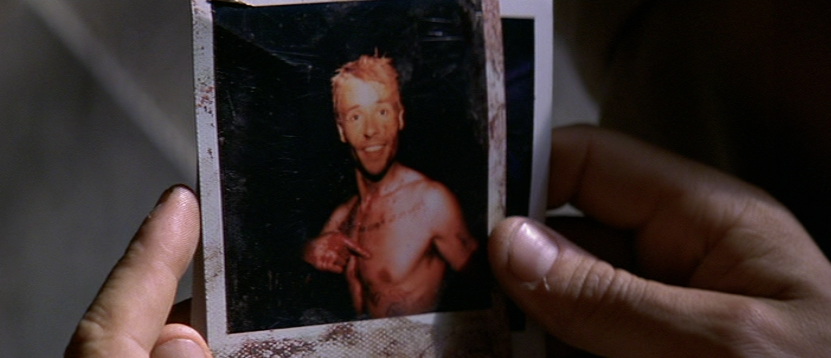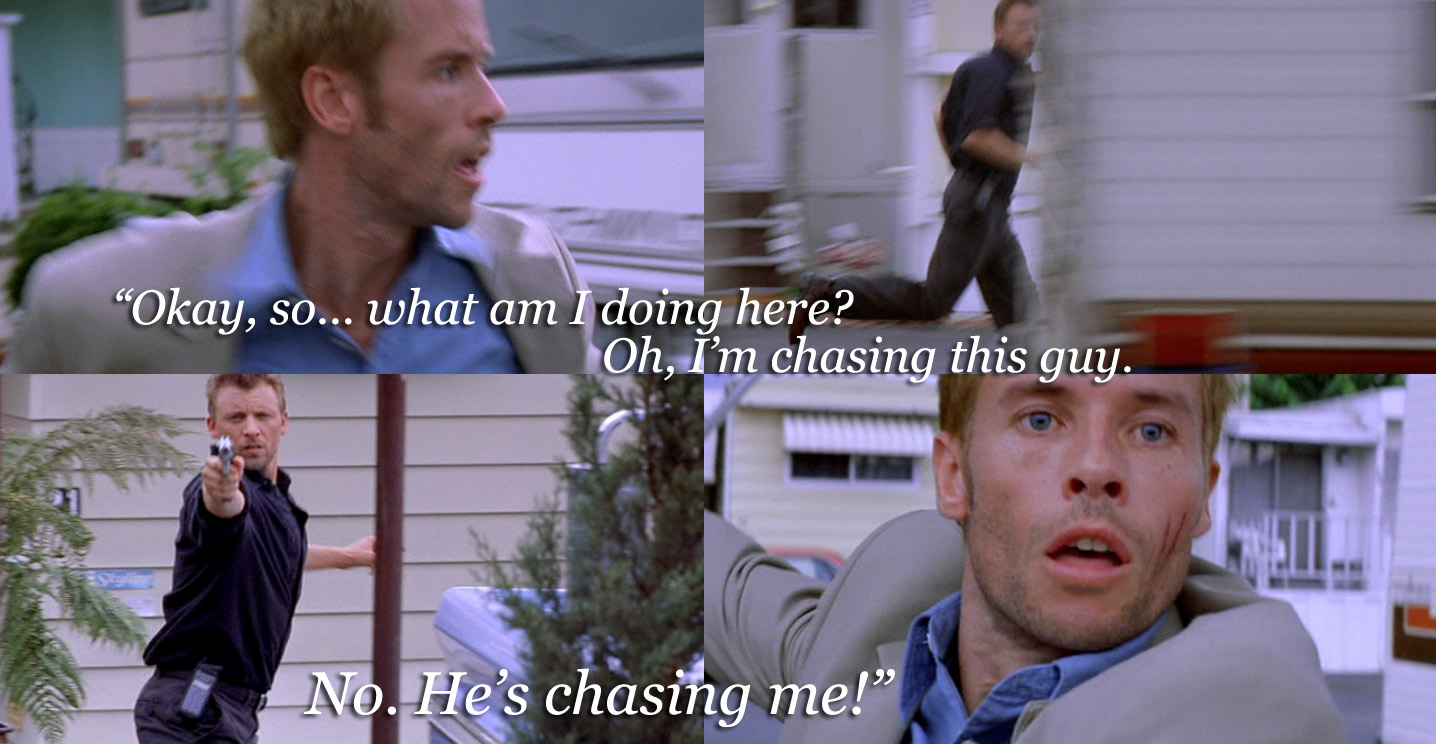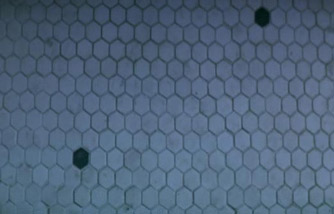 "What are you going to do when you find him?"In honor of cinematographer Wally Pfister's recent Oscar win (Inception) and the 10th anniversary of Memento's theatrical release (today), we're looking back on Chris Nolan's breakthrough for the season 2 debut of Hit Me With Your Best Shot.
"What are you going to do when you find him?"In honor of cinematographer Wally Pfister's recent Oscar win (Inception) and the 10th anniversary of Memento's theatrical release (today), we're looking back on Chris Nolan's breakthrough for the season 2 debut of Hit Me With Your Best Shot.
Memory and its malleability are the skeleton themes which Memento's inky flesh clings to. Leonard (Guy Pearce), who has lost both his wife and his short term memory to a murder/rape, is out for revenge. He tattoos "facts", quotes intended, onto his skin to remember them and he also takes polaroids; these repetitive shots of skin and photography are the movie's signature images. My "best shot" naturally combines them both.
The most ingenious thing about the screenplay's reverse construction is that as you become acclimated to it you start to wonder how each scene will begin in order to get to where you know it's already ended. The same thing happens with the polaroids. After a few of them are revealed you begin to wonder how each was taken. So in addition to Memento's overarching mystery "What exactly happened with that murder?" you get the continually evolving mini-mysteries of what the hell is going on has just gone on?
The final crucial polaroid, which is actually the first in true chronology is this spookily cheerful one of Leonard, pointing to his chest. This is a space we already know he has left empty on purpose, for (maybe) hen his revenge is complete. But that's too literal as he's also pointing to his heart. He looks nothing like the Lenny we've come to know.

Look how happy you were.
Lenny flips it over but no clues await him on the other side. The clue we're looking for this late (i.e. early) in the game is not what happened but who Lenny is or has become. Later in the narrative (i.e. earlier in the film) he'll turn the photo over again while talking to a cop about how no one trusts him. It's an especially telling moment as it's the only time he's not looking for clues by flipping a picture over. "We all need mirrors" he says at one point in the film but he obviously doesn't want to see this particular reflection.
Chris Nolan has returned to these themes of self deception and adjusted memory in subsequent films, but it works best in Memento. Returning to this impressive calling card ten years later, the biggest shock to the memory is how much fun it is. Each scene involving Dodd (Callum Keith Renne of Battlestar Galactica fame) in particular has a bracing dark humor.

This sense of humor is not referenced to imply that the film fails to intrigue or haunt with its disturbing undertow. It's just that Nolan's subsequent films have often been clever without exactly being "a gas" (just occassionally gassy). I'd be hesitant to call Memento Nolan's best film without rescreening The Prestige but it sure makes a strong claim.
Do I know you?
I urge you to check out these entries. I'm usually pretty proud of my own pieces for this series but I still felt a bit of the old disconnect with Nolan (I've always had to look at the critical reception of his work at a certain remove) and honestly I think some of these accomplices have outdone me with their pieces. Bravo.
 FACT 1: Pussy Goes Grrr chose a vulnerable fleshy moment.
FACT 1: Pussy Goes Grrr chose a vulnerable fleshy moment.
FACT 2: My New Plaid Pants sees the symmetries and the fog of memory.
FACT 3: Cinephilia & Sass remembers Sammy Jenkis.
FACT 4: Okinawa Assault identifies the bullet casing as totem.
FACT 5: Serious Film doesn't trust Teddy's lies.
FACT 6: Movies Kick Ass doesn't trust Nolan's eyes.
and my apologies... I forgot to link to...
FACT 7: Amiresque is waiting for Natalie to come into focus. Beautiful choice, Amir!
late arrivals!
FACT 8: Against the Hype knows that Memento knows from irony; "it peddles unabashedly in it."
FACT 9: Luisergho finds the facts touching.
Next Wednesday...
We'll be gazing at two bonafide immortals, Vivien Leigh and Marlon Brando, in the well-Oscared classic A STREETCAR NAMED DESIRE (1951). It's part of our weeklong celebration for the Tennessee Williams Centennial. If you've never seen it, talk about a perfect opportunity to fill that void in your life. Will you join us?